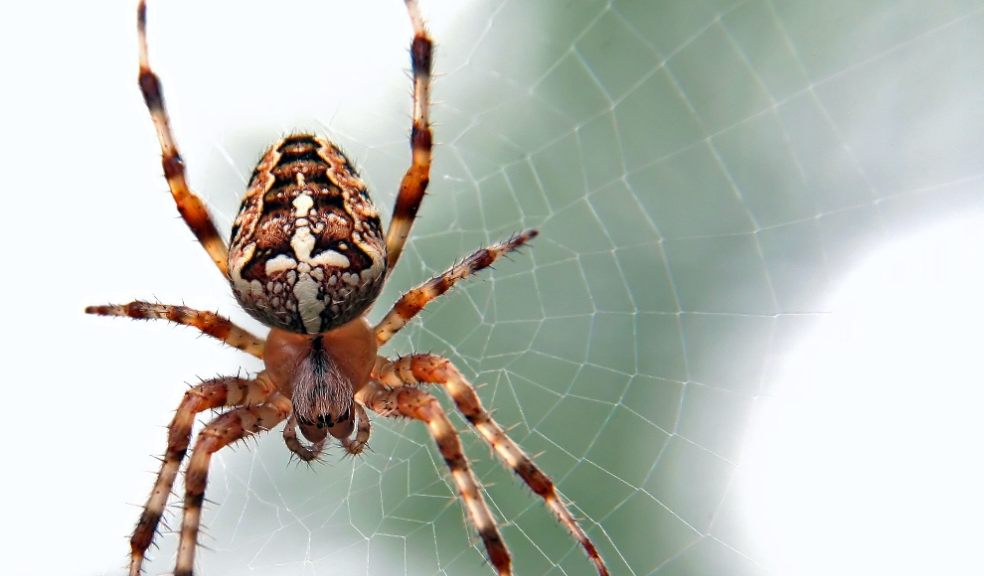
Spider Season - How to Keep Spiders Out of Your Home
As the days get shorter and the weather gets colder, we’re officially entering Autumn season. While this is a great time of year for many, autumn is also the start of the spider season in the UK, which can be devastating for some homeowners – especially those with a fear of these little critters.
During the autumn months, spiders are searching for places to keep warm and sheltered. This often results in spiders entering homes. Below, pest control expert Robert Collins at MyJobQuote.co.uk explains how to keep spiders out of your home this autumn and explains how you can identify the most common types of spiders that invade UK homes at this time of the year.
Types of Spiders UK Homeowners May Find In Their Homes This Autumn
There are many different types of spiders that can invade UK homes. However, some are more prevalent at this time of year. The list below highlights the most common types of spiders that homeowners may see in their homes at this time of the year.
- Common fox spider - A fast-moving spider that chases prey.
- Green orb-weaver spider - A small spider with a bright green abdomen
- Diving bell spider – This spider can live underwater and spins a web capsule with a trapped air bubble for breathing and laying eggs
- Giant house spider – This spider is quite large and spins sheet-like webs. Able to sprint across the floor at a pace of 20 inches per second
- Harvestman spider – A spider with a tiny body with a fused abdomen and head. This spider has very long, thin legs that it can shed when attacked
- Zebra jumping spider – Identified by black and white stripes. This spider stalks and pounces on prey
- Money spider – The most common spider in the UK. There are 270 species of money spiders in the UK
- Tube web spider – This spider has a distinctive green jaw and three groups of two eyes. It spins funnel-weave webs in cracks in buildings
- Noble false widow spider – Featuring a skull-shaped marking on the abdomen, this spider is often mistaken for a black widow
- Lace-weaver spider – This spider weaves a flat web over a wall crevice, which creates a silken tunnel where it grabs its prey
- Cellar spider – This spider has long limbs and can often be found in corners of rooms where they create loose webs to hang from. It may move erratically when trying to scare off a predator.
How to Get Rid of Spiders
There are many things you can do to prevent spiders from entering your home and to get rid of them when they appear. Below is a list of things you can do to help make sure spiders aren’t an issue for you this autumn.
Set Up Some Spider Traps
You can purchase spider traps at home and garden stores. These are designed to catch spiders and kill them and may be effective when placed in high-traffic areas. You can simply leave the traps to do their work and then dispose of them when the job is complete.
If you are looking for a more humane way of getting rid of spiders, you can find some spider traps that simply catch the spiders without killing them. However, these are harder to come by.
Another example of a great trap for spiders is a glue trap. This type of trap entices the spider, and once the spider walks on the trap, they become stuck to it and cannot escape. The strength of the glue prevents the spider from being able to climb or walk away without causing harm. So, the spider will remain stuck to the trap, which can then be disposed of.
Remove Existing Webs
Use a vacuum to remove spider webs as soon as you see them in your home. It's worth taking some time to pull out old furniture items and inspect for webs, as you never know where they may be lurking.
Try to vacuum your home fully once each week to keep on top of any hidden webs.
Make Use of Peppermint Oil
Peppermint oil emits a strong scent which repels spiders. Add 15 – 20 drops of peppermint oil to a spray bottle with water and spritz this in any areas where you’ve noticed spiders in the home.
You can also purchase spider-repellent plug-ins. These plug-ins usually emit a peppermint scent that will help to deter spiders from your home. If you are using these, place them in rooms where spiders are seen more often or in high-traffic areas.
Use Vinegar
Vinegar works in the same way as peppermint oil. The scent of the vinegar will deter spiders and make them less likely to settle in your home.
Fill a spray bottle with equal parts white vinegar and water and spritz the mixture around your home. It’s a good idea to spray it close to entry points such as doors and windows to prevent spiders from entering in the first place.
Install Some Screens
If you leave windows or doors open throughout the day, install screens to keep spiders out. You can purchase window and door screens online or from many home stores. These screens will block the window while still allowing you to have your windows and doors open.
A screen will prevent spiders from being able to enter through the open passage, meaning you’re safe to keep them open without the worry of a spider infestation.
Insecticides Can Work Wonders
There are many insecticides available for getting rid of spiders. Spray treatments can be used along the edges of your home and underneath the furniture to form a barrier that can kill or repel spiders.
Just be careful if you’re spraying these in a home with pets or children, as they are usually made up of chemicals that could be harmful if touched or ingested.
Keep Your Home Clean
Clean your home regularly and keep it tidy, as this can make it more difficult for spiders to find a good hiding spot. Regularly vacuum your home, including all of the corners, underneath your furniture, and across your ceiling.
Also, keep on top of dusting. Regularly dusting and vacuuming will prevent the spiders from being able to settle for long.
Use a Spider Catcher
Spider catchers are great devices for humanely removing spiders from your home. It is a hand-operated stick that features gentle fibres at the end, designed to pick up spiders safely. The device holds the spider securely in the fibres so you can move it outdoors to be released.
You can purchase spider catchers at many retailers and online. They have become a very popular option for removing spiders as they won’t harm the spiders but provide a fast and effective way to remove them from your home.
Keep Your Lights Off
Similar to moths, spiders are also attracted to light. With this in mind, it’s best to ensure all of your lights are switched off whenever you’re not using them.
If you do have lights on in the home, try to keep curtains or blinds closed and avoid leaving doors or windows open.
Which Types of UK Spiders May Bite
There are many different species of spiders in the UK. However, there are not many of those that will bite. The two main species of spider that you may find in the home that have a tendency to bite are the cellar spider and the false widow spider. Spider bites in the UK are not harmful to your health and are quite rare. However, they may not be the most pleasurable experience and could cause swelling for several hours.













